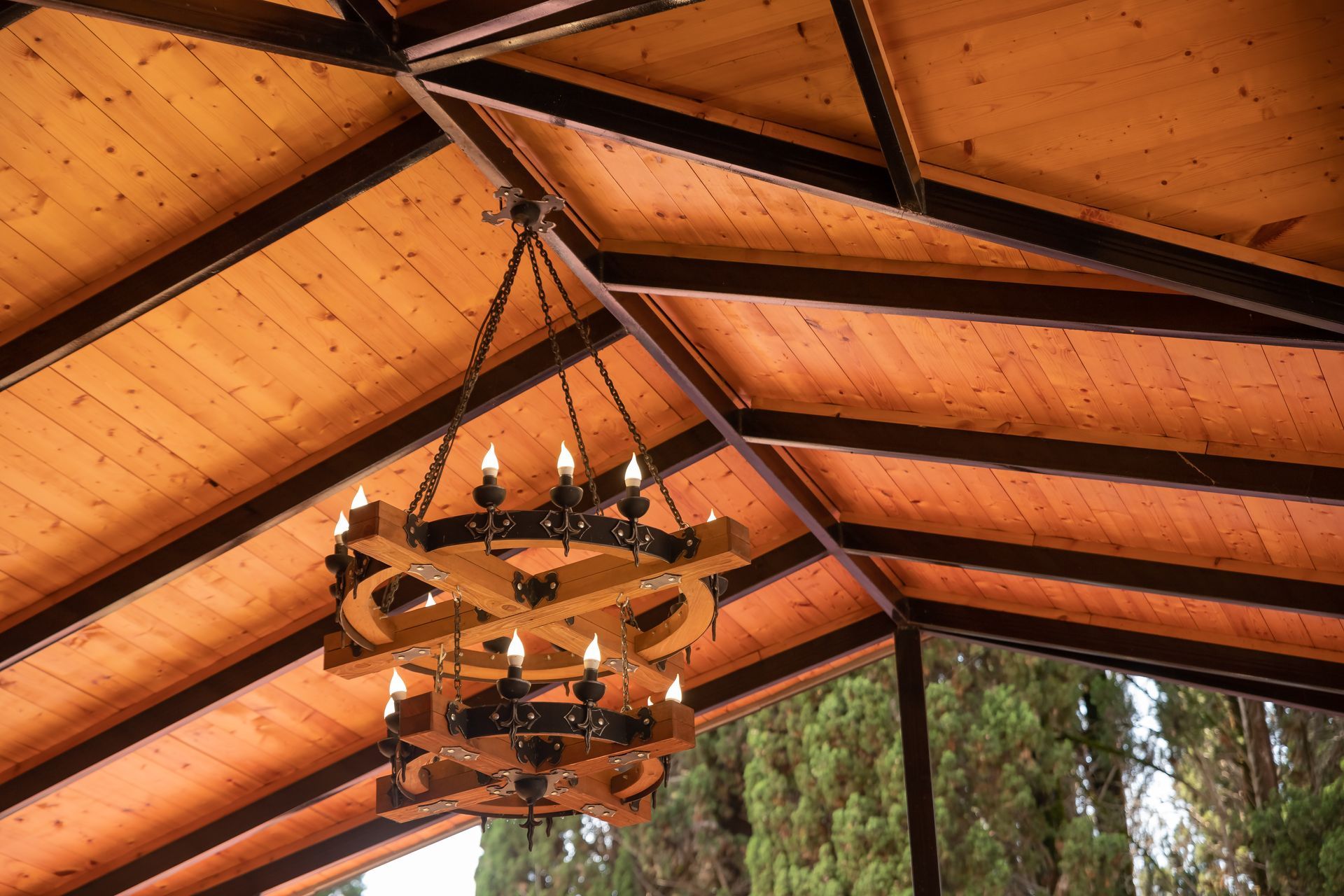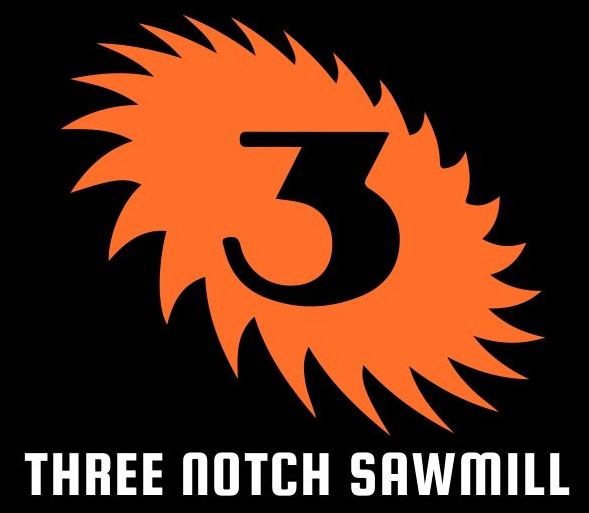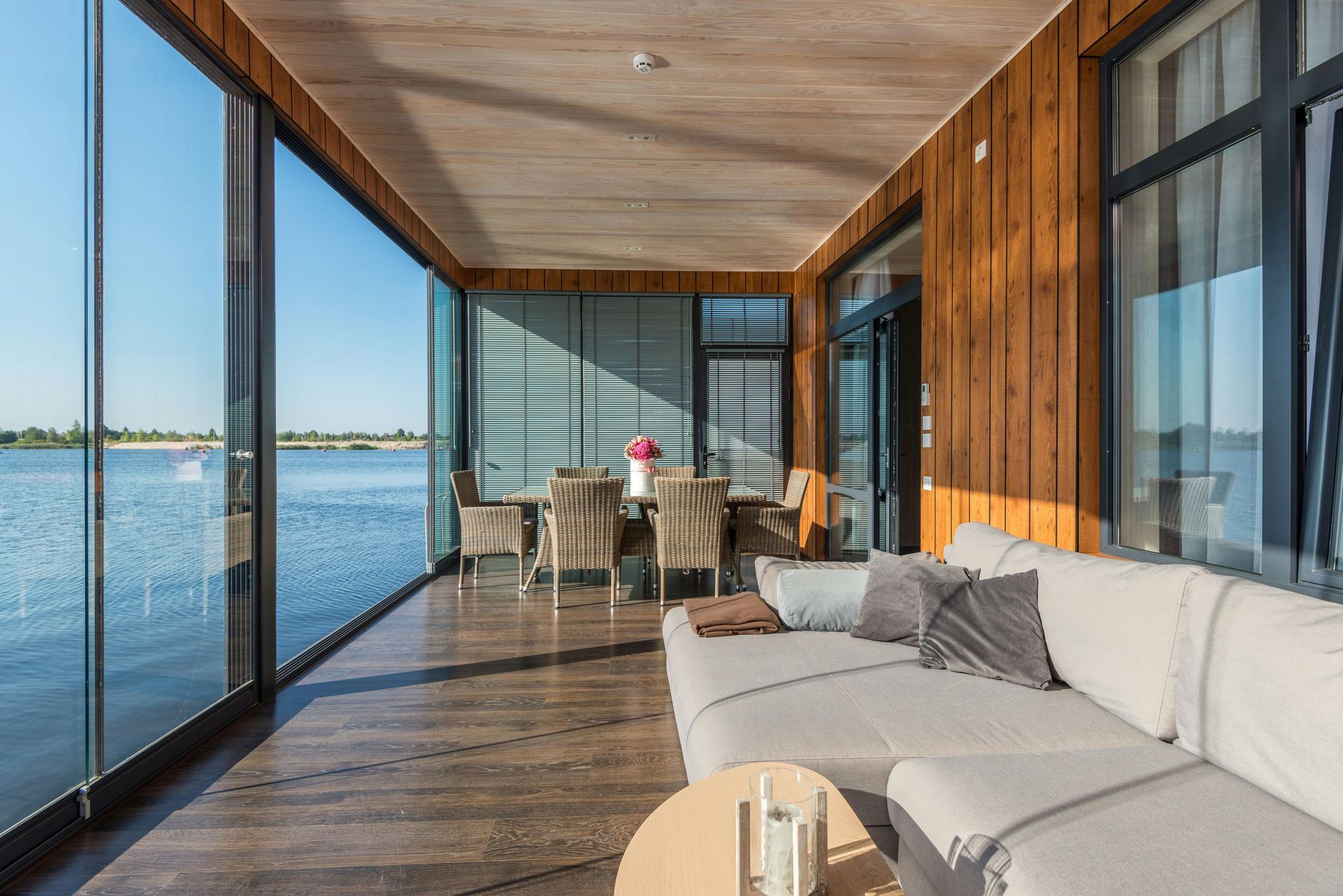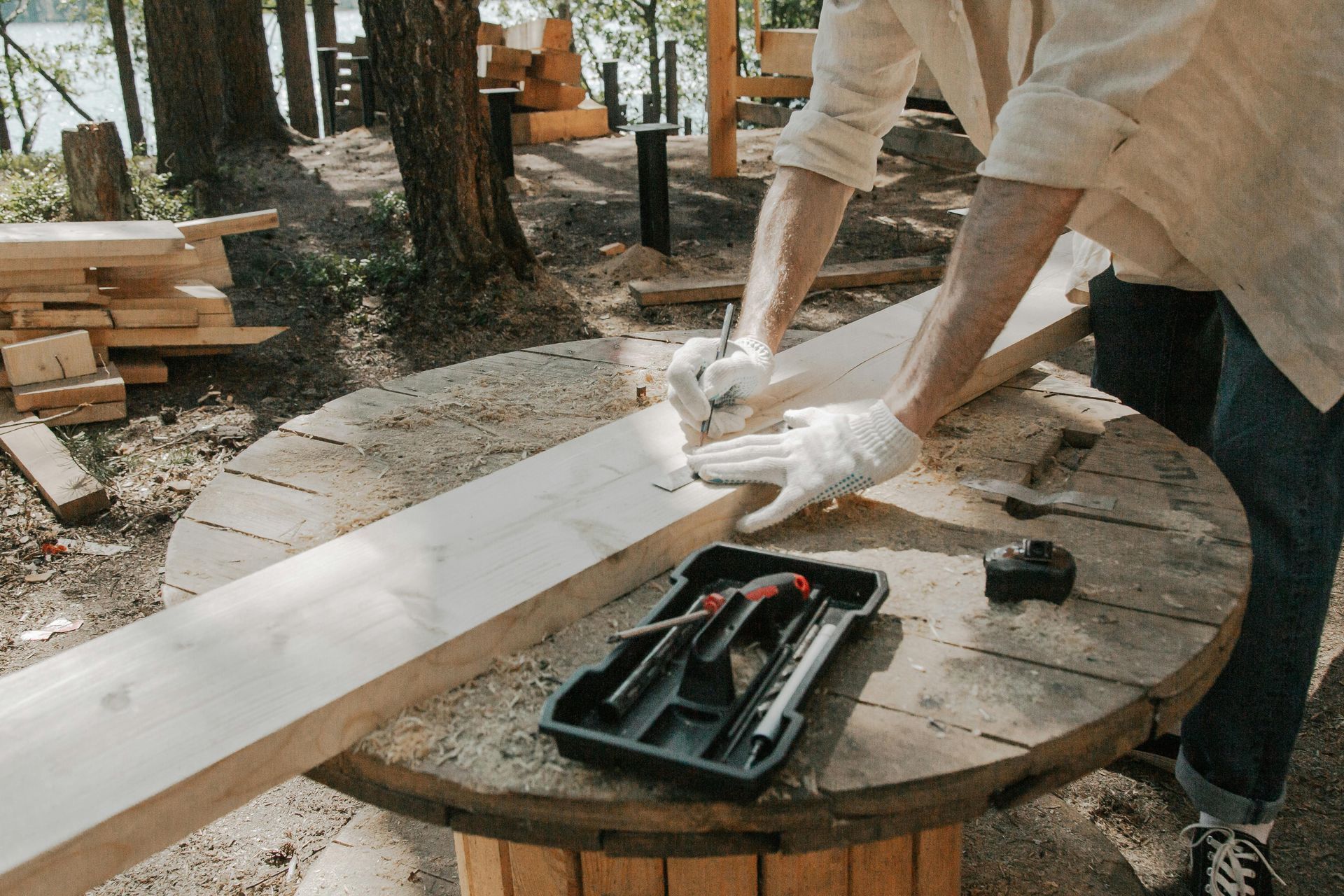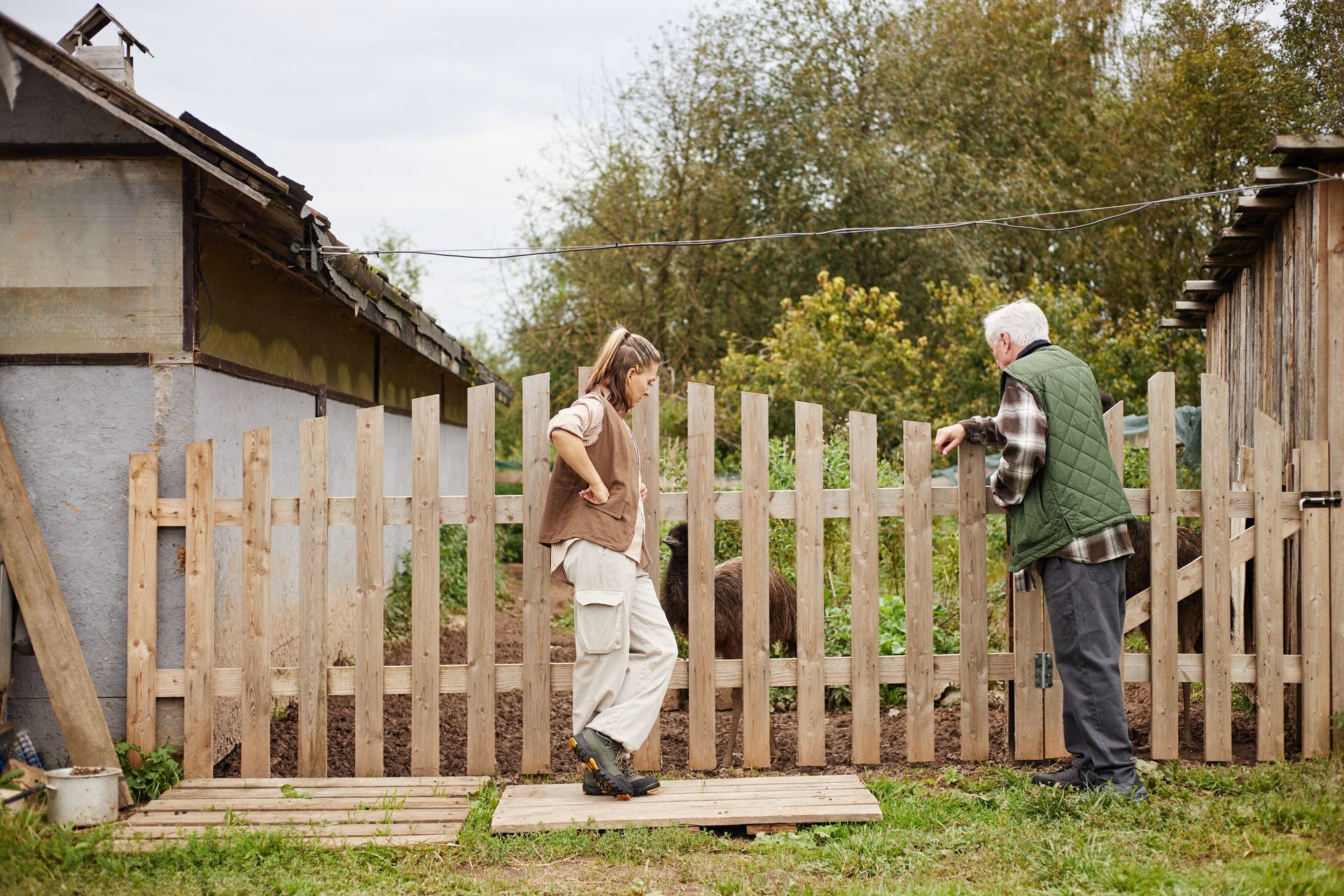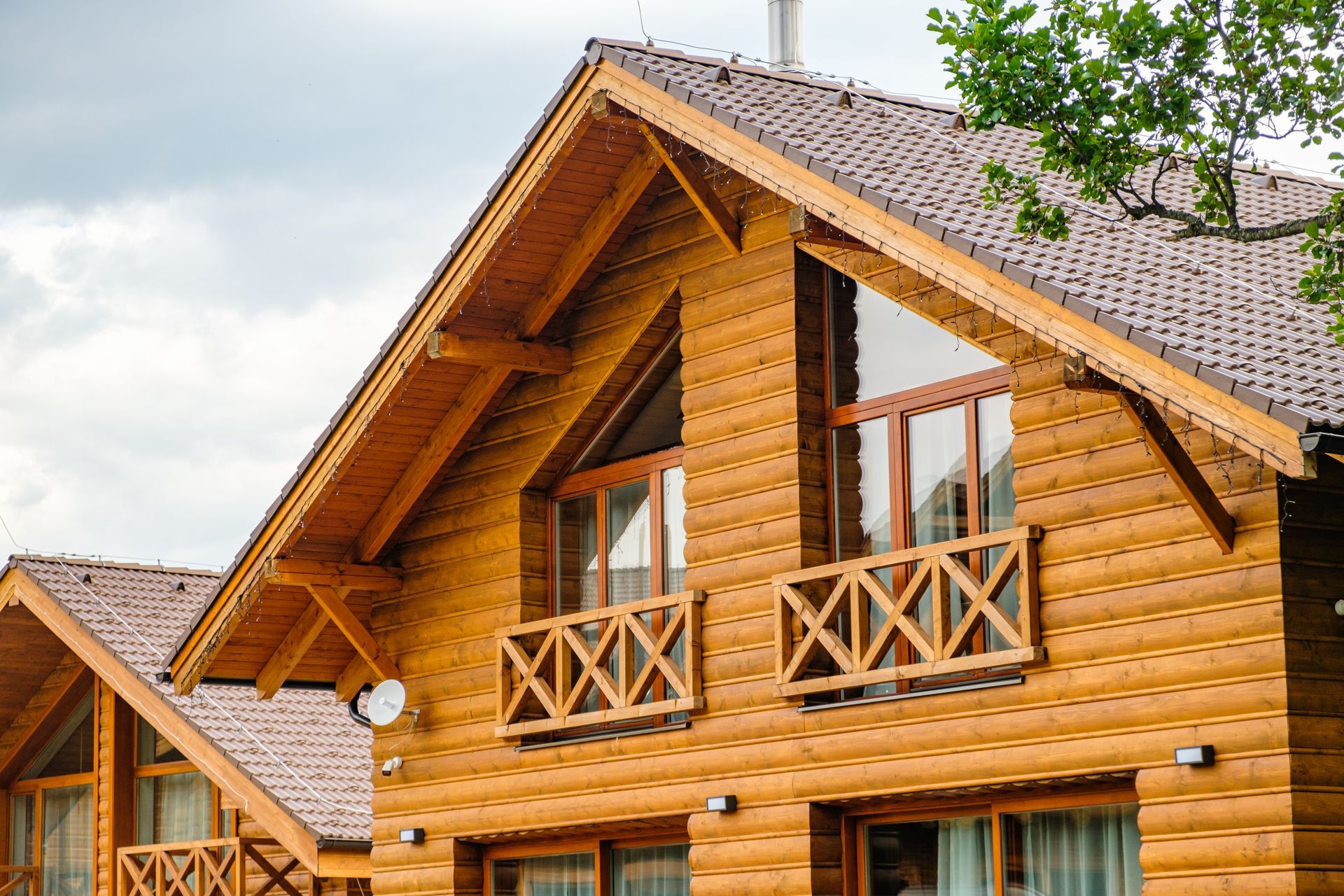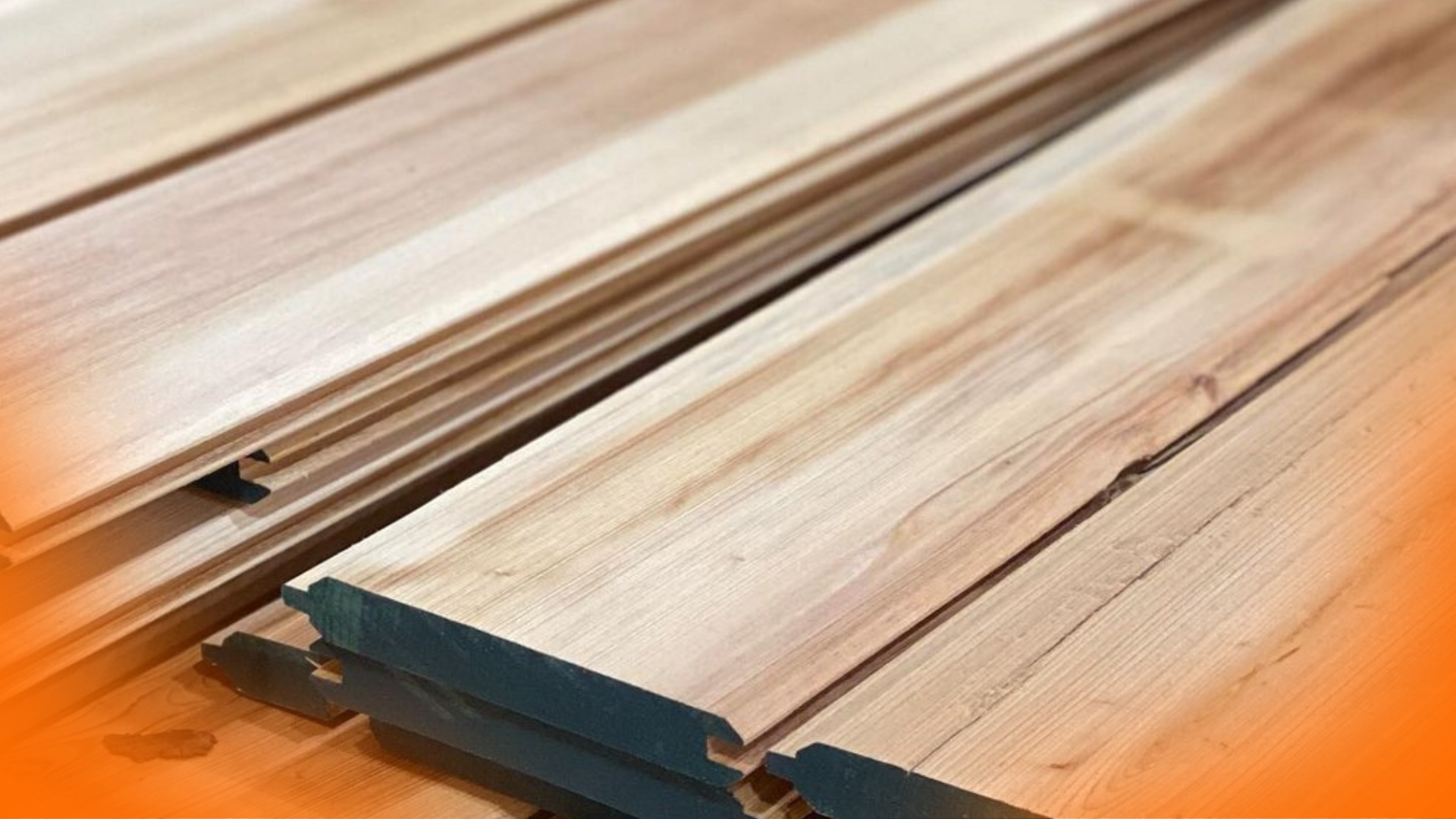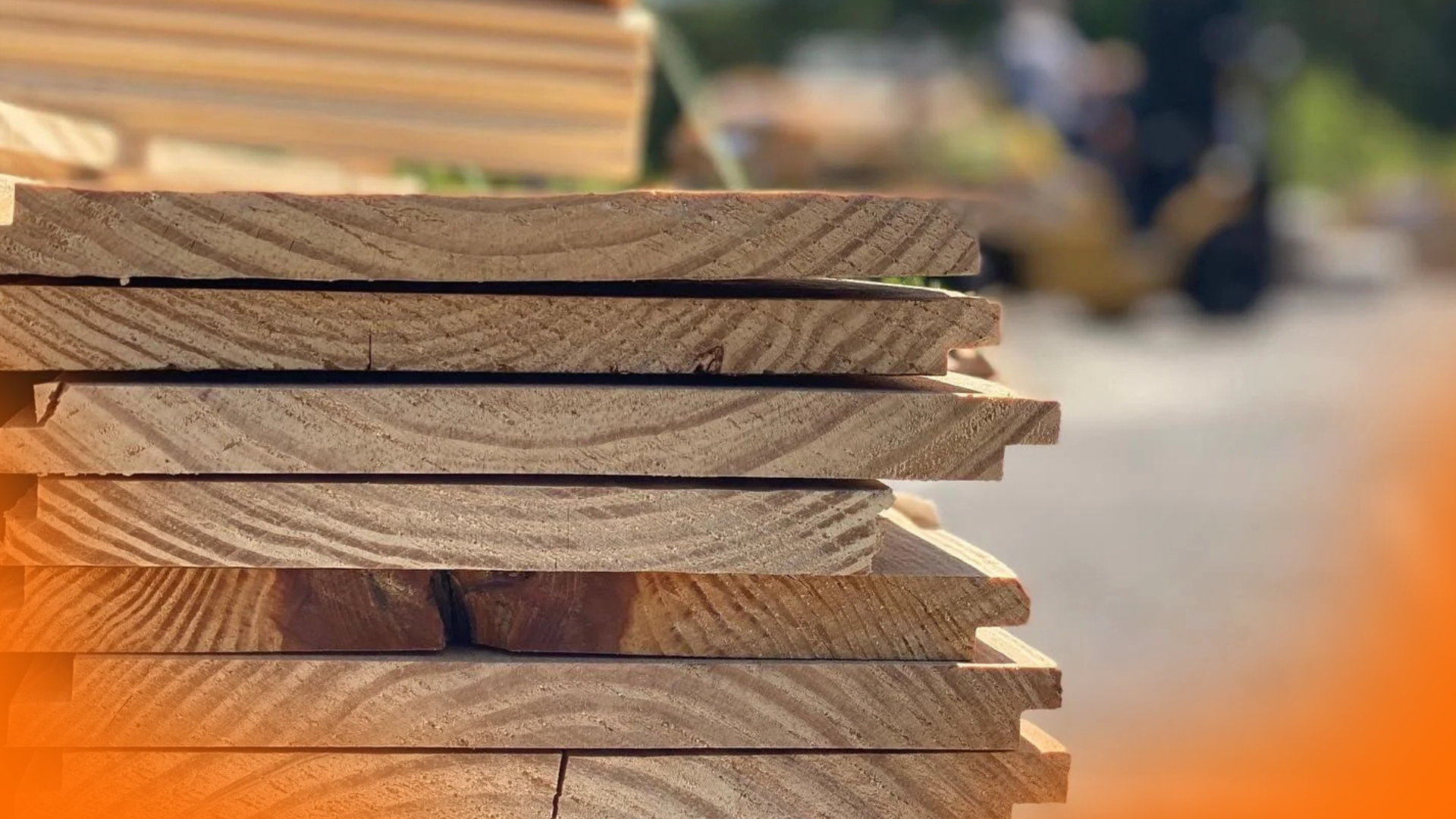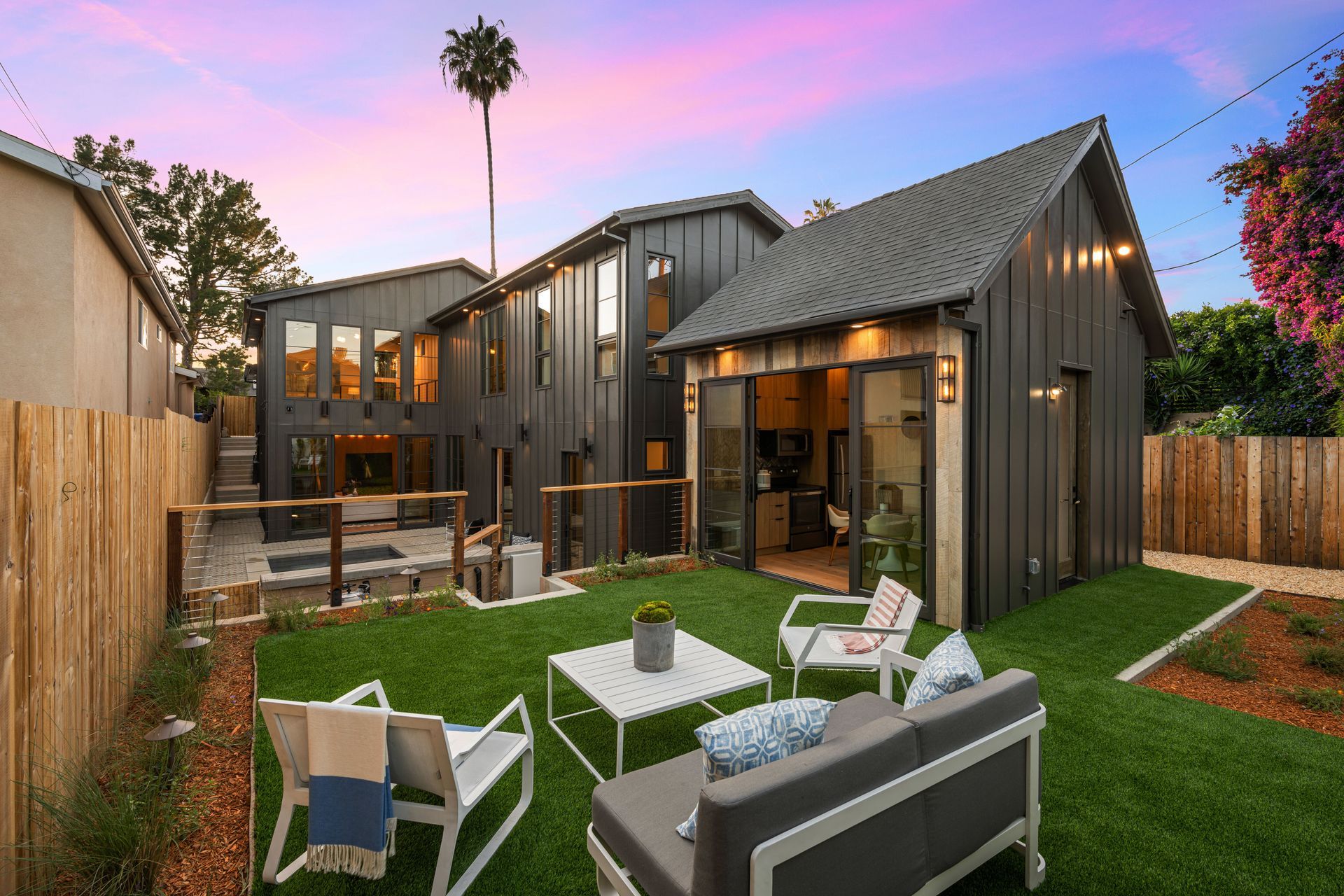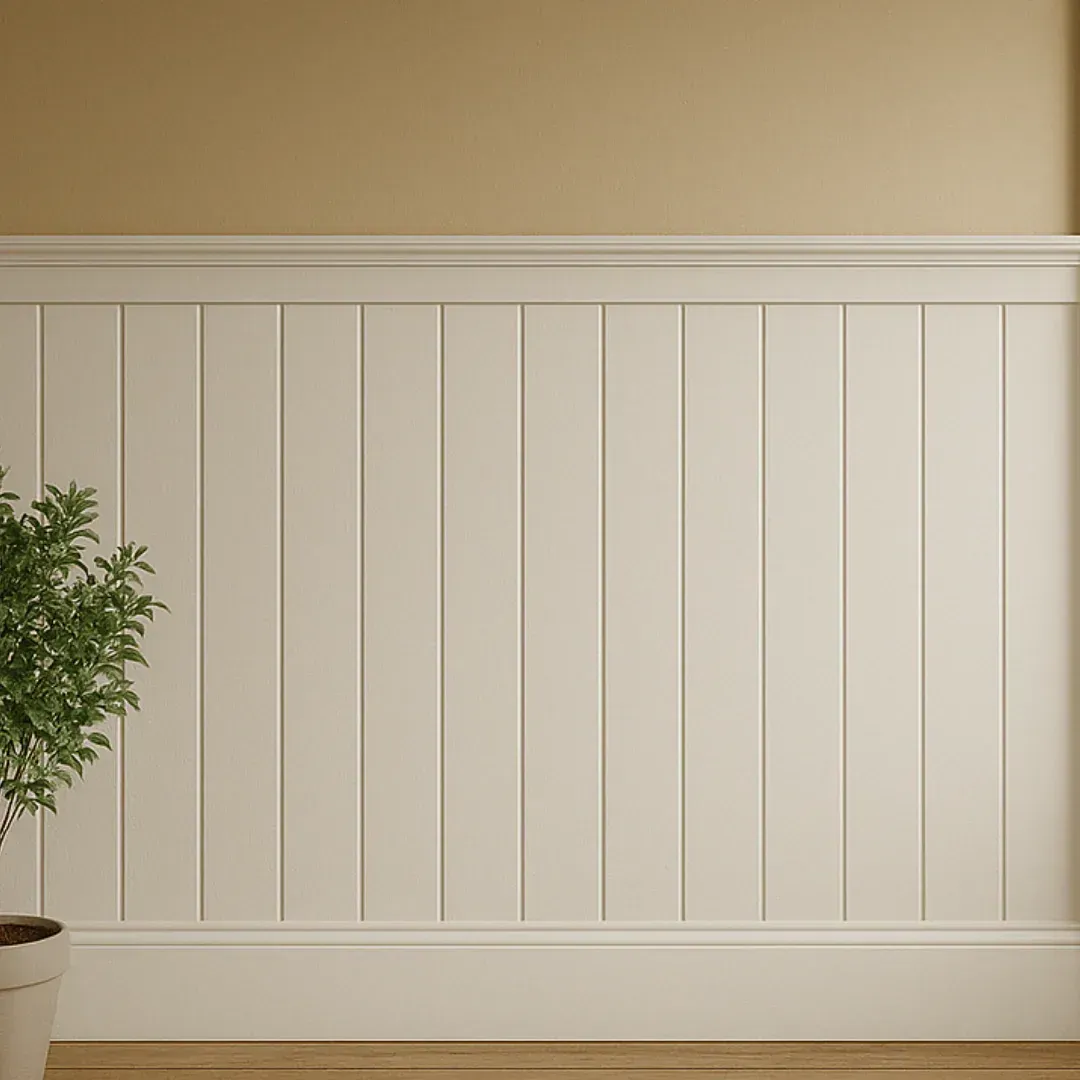Why Builders Across Mississippi Prefer Cypress Over Pressure-Treated Lumber
If you're planning an outdoor project in Mississippi, you've probably come across two common material options: cypress lumber and pressure-treated wood. While both have their uses, more and more contractors and DIYers are choosing cypress for its natural beauty, durability, and low maintenance.
In this guide, we’ll break down the pros and cons of each material—and explain why Three Notch Sawmill’s locally milled cypress is the smarter investment for long-term performance.
What Is Pressure-Treated Lumber?
Pressure-treated (PT) lumber is softwood—usually pine—that’s been infused with chemical preservatives to resist moisture, rot, and pests. It’s widely used for fencing, decking, and structural framing in outdoor construction.
While it's readily available at big-box stores and typically cheaper upfront, PT lumber has some drawbacks:
- It warps, twists, and cracks more easily over time
- It may contain chemicals like copper azole or alkaline copper quaternary (ACQ)
- It often has a greenish or uneven tint
- It typically requires sealing or staining within the first year
- Its lifespan is shorter unless maintained meticulously
What Makes Cypress Different?
Cypress is a naturally durable softwood native to the southeastern United States. Its standout feature is a naturally occurring oil called cypressene, which makes the wood highly resistant to:
- Moisture and decay
- Termites and boring insects
- Mold and mildew
Cypress lumber offers exceptional dimensional stability and doesn’t require chemical treatment. It's particularly well-suited for Mississippi's hot, humid, and wet climate.
Cypress vs. Pressure-Treated Lumber: Side-by-Side Comparison
In the past year alone, we’ve completed dozens of same-day cuts for customers in need:
- Emergency porch beam replacement in Laurel after storm damage
- Custom tongue-and-groove for a bathroom remodel in Hattiesburg
- Chiplap siding for a last-minute guest house in Magee
- Large batch of posts and rails for a farm fence near Columbia
We know how critical it is to have the right material at the right time—and we’ve built our mill around that need.
Where Cypress Really Shines
In Outdoor Projects:
Cypress lumber excels in virtually any exterior use, including:
- Porch columns and architectural posts
- Decking and handrails
- Exterior siding and fascia
- Pergolas and outdoor kitchens
- Raised garden beds
- Gates, arbors, and custom fencing
Builders choose cypress because it performs better outdoors without needing constant care. Its strength and rot resistance make it a top-tier choice for exposed structures.
In Interior Design:
Beyond exteriors, cypress is increasingly popular in upscale and rustic interiors:
- Tongue-and-groove ceilings
- Accent walls
- Exposed beams and trusses
- Fireplace mantles
- Custom cabinetry and built-ins
Homeowners love how it brings natural warmth, charm, and texture to modern, farmhouse, and Southern-style homes.
Real-World Examples in Mississippi
Here at Three Notch Sawmill, we’ve worked with clients all across the Pine Belt and Gulf South. A few recent examples include:
- Deck Builder in Laurel who switched to 2x6 cypress for a client tired of warping PT boards.
- Homeowner in Hattiesburg who installed tongue-and-groove cypress ceiling on a new porch.
- Remodeling contractor in Magee who replaced old PT siding with clear-finished cypress lap boards for a high-end look.
- Landowner in Columbia who chose cypress posts and rails for a long-lasting cattle fence without chemicals near grazing land.
These projects not only looked better—they also held up longer with less maintenance.
Long-Term Cost Savings
While pressure-treated wood might be cheaper per board foot, those savings can disappear quickly:
- Frequent sealing and restaining = $$$
- Higher likelihood of replacements = more labor
- Downgraded curb appeal over time = lower resale value
Cypress pays off over time because it lasts longer, performs better, and increases project quality. For contractors, this means fewer callbacks and more satisfied clients.
Environmental & Health Considerations
Unlike pressure-treated lumber, which uses chemical compounds that can leach into soil or water, cypress is a sustainable, chemical-free alternative. This makes it safe for use around:
- Vegetable gardens
- Pet enclosures
- Children’s play structures
All of our cypress is locally and responsibly harvested—reducing the carbon footprint compared to shipping in treated lumber from out of state.
Why Buy from Three Notch Sawmill?
We’re not a box store. We’re a working sawmill that provides:
- Custom-milled cypress cut to your exact specs
- Posts, beams, siding, tongue-and-groove, chiplap & more
- Same-day or next-day milling for most orders
- Friendly service and knowledgeable staff
- Local pickup in Collins, MS or regional delivery
We help contractors, builders, farmers, and homeowners get better wood, faster—and with real support.
FAQs About Cypress vs. Pressure-Treated Lumber
Is cypress more expensive than pressure-treated wood?
Yes, typically. But it lasts longer and reduces lifetime maintenance costs—making it more economical long term.
Can cypress lumber go in the ground?
Cypress can handle some ground contact, but elevating it will extend its life. We recommend gravel or metal post bases for fences or arbors.
How often does cypress need sealing?
Sealing isn’t required, but if you want to maintain its golden color, a UV-protectant sealer every 2–3 years is ideal.
Can I use cypress for structural framing?
Yes, especially for porches, pergolas, carports, and sheds. It’s strong, stable, and easy to work with.
Does cypress repel insects naturally?
Yes. Cypressene, the natural oil in cypress, helps resist termites and other wood-damaging pests.
Build Better with Cypress
If you're looking for a lumber solution that performs better, looks more beautiful, and holds up longer in Mississippi’s climate, cypress is your answer, and Three Notch Sawmill is your source.
We cut, finish, and deliver custom cypress orders throughout South Mississipp, and we’re ready to help you build better.
